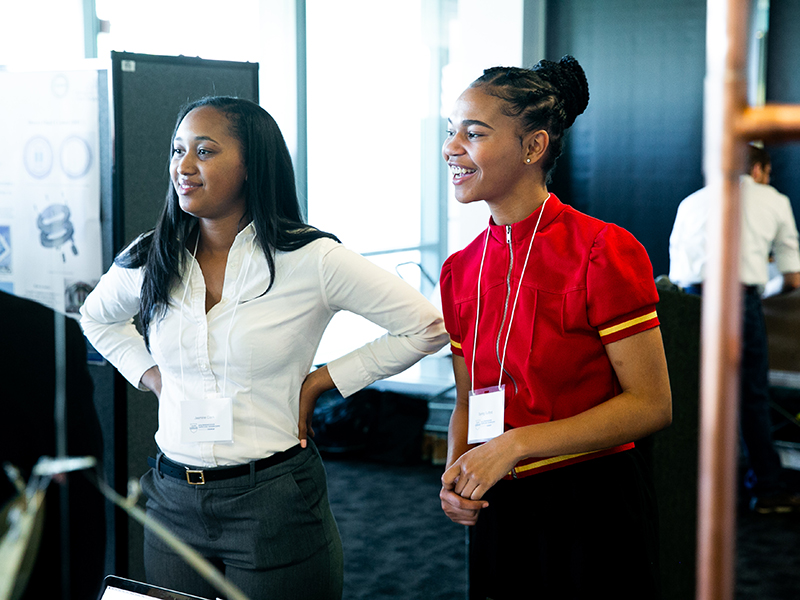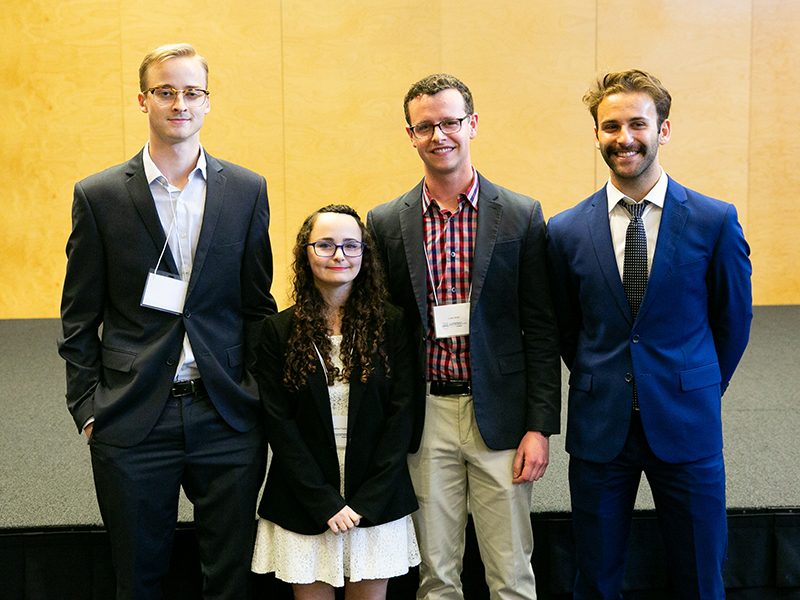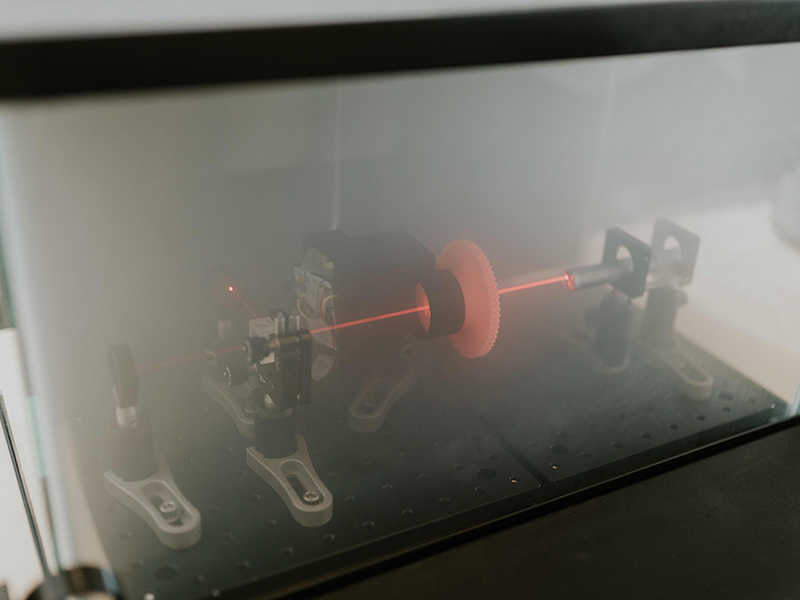
Senior Design is the capstone course for Engineering Physics majors. Students use engineering principles learned over the course of their previous studies to solve a real world problem. This two-semester course allows teams of students to conceive of a design, analyze the design, build a prototype, and present their results to peers, industry partners, and faculty.
The senior design experience culminates in the Tulane Engineering Design Expo, where students demonstrate their final prototypes along with their colleagues from across all of Tulane’s engineering departments, as well as computer science. See the Presentation section below for highlights from past Expos.
Pillars of the Course
Sources
Each capstone project is an opportunity for students to solve a real-world problem. The projects can stem from a variety of fields and sources. Some are sponsored by local industry partners, while others are proposed by Tulane faculty or the students themselves.
Types
The opportunity could involve aspects of a number of engineering fields: computational, electrical, materials, mechanical, or others. The scope of the project should be such that a working prototype can be expected in a nine month time frame, with adequate funding and ~40 hours of student work per week.
Proposals
If you are interested in proposing a project, please fill out a proposal form, or contact Professor Matt Barrios (matthew.barrios@tulane.edu) for further information.
Teams
Teams are generally made up of 3-4 students, who chose projects based on their interests and expertise. Students are tasked with determining their roles within the project. Interdisciplinary collaboration is encouraged, and multi-department teams are possible.

Sponsors
Sponsors may be faculty, local engineers or engineering firms, alumni, or others. The sponsor may provide funding, the proposal for the project, engineering support, or a combination of the three. Please contact Professor Matt Barrios (matthew.barrios@tulane.edu) if you are interested in sponsoring a project.
Advisors
In addition to the sponsor, students will identify advisors to help with the project. Advisors are generally technical experts in one or more of the fields associated with the project. Advisors are often faculty, but may be local engineers or other professionals.
Professor
Professor of Practice Matt Barrios is the instructor for the course. Professor Barrios works to connect Engineering Physics students with local industry through senior design projects, internship opportunities, site visits, etc. He started Tulane’s annual Engineering Capstone Design Expo in 2017. Professor Barrios’ has a PhD in mechanical engineering, and his former research interests centered on cryogenic engineering.
| Task | Description |
|---|---|
| Identify an opportunity | Choose or propose a project. Define the scope of the problem with the help of the sponsor. |
| Perform market research | Identify potential customers and prior art. Obtain customer feedback. Find customer needs and specifications. |
| Generate and select a design concept | Brainstorm, implement TRIZ, or use other techniques to explore potential solutions. Use a structured approach to select the best idea. |
| Create and test a prototype | Use the Makerspace and other resources to produce a physical representation of the product. Perform tests to determine if it meets the specifications. |
| Evaluate and iterate | Examine the prototype's performance. Obtain feedback and go through the steps again, as necessary, to improve on the design. |
Project management is one of the most important aspects of the course. Students will develop a project management plan to govern communication, budget, resource and labor planning, etc. Students are responsible for adhering to the plan and using it as a tool to ensure the satisfaction of all stakeholders.
Students are expected to produce an initial prototype by the end of the first semester. This will be tested and modified during the second semester before being exhibited at the Capstone Design Expo and final presentations.
Undergraduate students own their intellectual property, and are thus free to continue development of the prototype after the course is completed. Alternatively, students are free to make agreements with sponsors to share or grant IP as appropriate.

Communication is key to the success of the project. Teams will communicate their final designs as follows:
